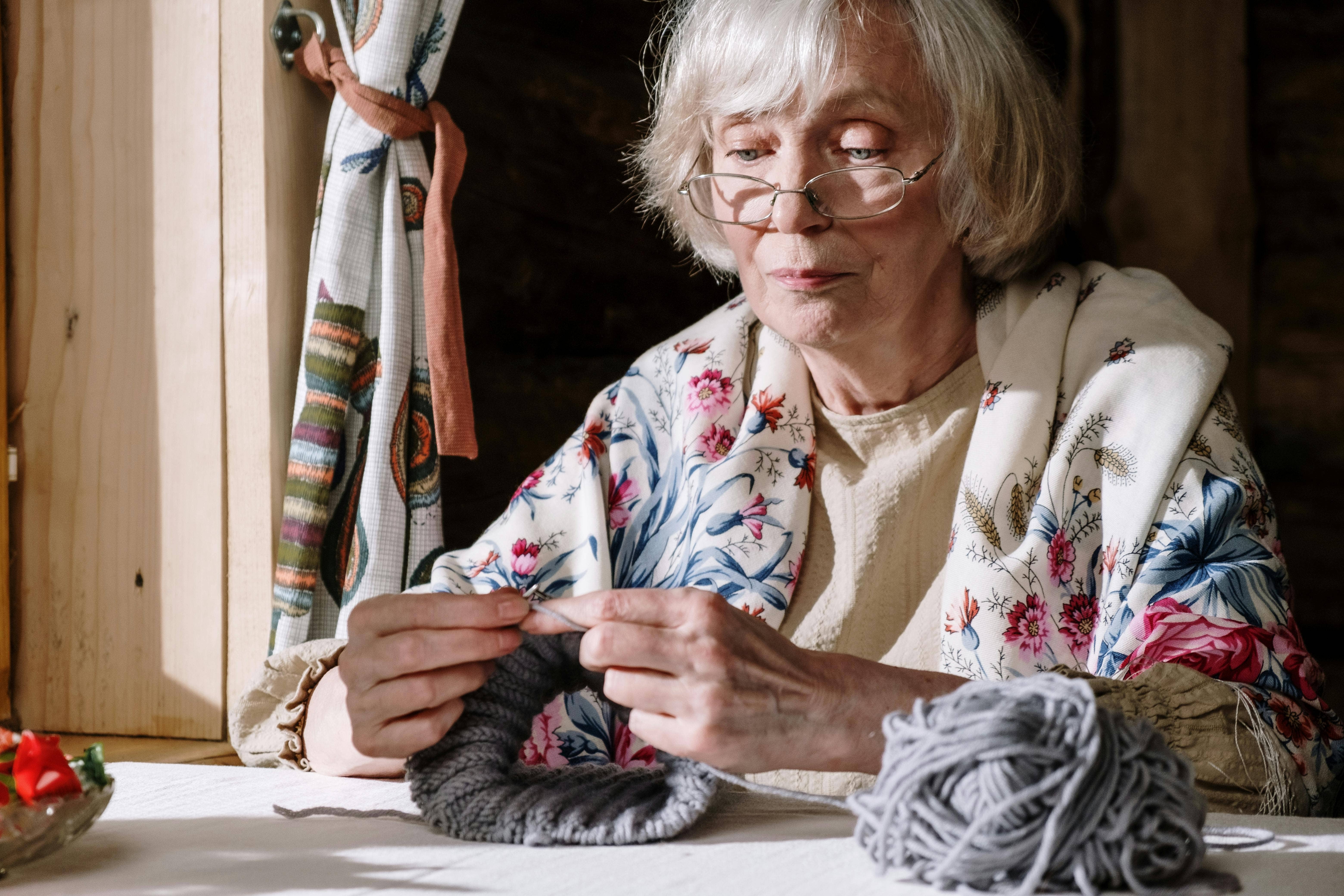10 Subtle Signs Of Dementia That Are Less Obvious At First
It’s more than just forgetting where you put your car keys.
 Monkey Business Images | Canva
Monkey Business Images | Canva When Bruce Willis was diagnosed with frontotemporal dementia at the age of 67, it added to the growing awareness that dementia isn’t just one disease. There are hundreds of different types of dementia.
When Robin Williams died, we were introduced to Lewy Body Dementia, a form of dementia mainly related to thinking, memory, and movement. Williams’ despair and probable psychological symptoms led to his shocking suicide.
Willis, whose career evolved from light comedy in the 1980s television series Moonlighting to action hero, has stayed out of the public eye as his symptoms have progressed. After almost a year of using the term “aphasia” to describe his condition, the star’s family has revealed he has FTD.
Frontotemporal dementia is itself divided into two types: behavioral variant FTD (bvFTD), which mainly affects behavior and personality; and primary progressive aphasia (PPA), a group of dementias mainly causing a loss of speech and language abilities.
The most common form of dementia is Alzheimer’s Disease, which affects 60% to 70% of those classified as having dementia. But despite popular perception of the disease, there are early signs of dementia that go beyond forgetting where you put your car keys or momentarily forgetting the names of family and friends.
Here are 10 subtle signs of dementia that are less obvious at first:
1. Failing to recognize sarcasm
 Andrea Piacquadio / Pexels
Andrea Piacquadio / Pexels
Research has shown that people with both FTD and Alzheimer’s disease tend to have a harder time recognizing sarcasm. They become more literal in their understanding of language and lose their sense of nuance and tone.
Another unusual sign of dementia is that people with FTD often can’t tell when someone is lying, although people with Alzheimer’s disease can. This particular symptom has led to the creation of a “Scam Squad” where I live after one elderly resident lost over $100,000 to a con artist who called her repeatedly and preyed on her inability to recognize his lies.
2. Falling more frequently
 Ivan Samkov / Pexels
Ivan Samkov / Pexels
Frequent falling could be an early signal of Alzheimer’s disease, according to a study published in October 2021 in the journal Frontiers in Neuroscience. The study found that older adults who later develop Alzheimer’s disease are at higher risk for falls and other accidents in the years before their diagnosis. Another reason to practice your balance exercises.
3. Disregarding social norms
 Andrea Piacquadio / Pexels
Andrea Piacquadio / Pexels
Some people with dementia lose their sense of social norms. Surprising dementia symptoms can include shoplifting, breaking into someone’s house, inappropriate interpersonal behaviors such as lewd comments or actions, and even criminal behavior, according to a review published in October 2020 in the journal Cortex.
Early-onset dementia can hit people as early as their 30s and 40s and be mistaken for drug use or mental illness by the court system since they appear too young for a disease associated with the elderly.
4. Trouble reading
 RDNE Stock project / Pexels
RDNE Stock project / Pexels
When a person loses the ability to move their eyes normally, it’s known as “reduced gaze.” We move our eyes frequently and track objects without even knowing we’re doing it. People showing early signs of dementia may look like they’re staring a lot, and they may skip lines when they read.
5. Eating rancid food
 Wallace Chuck / Pexels
Wallace Chuck / Pexels
People with dementia will sometimes eat nonfood objects or foods that are rancid or spoiled. It’s easy to understand that their taste buds and sense of smell may have weakened. I do a weekly scan of my mom’s refrigerator looking for things that are past their prime.
But eating nonfood items is more difficult to explain. One theory is that a person with dementia may simply no longer know which items are food and which aren’t.
6. Not understanding what everyday objects are used for
 Karolina Kaboompics / Pexels
Karolina Kaboompics / Pexels
Searching for the right word is fairly common. But forgetting not just the names of objects, but what they’re used for, is an early dementia symptom. Oddly enough, people who are losing this knowledge can be very competent in other areas of their lives, again demonstrating that dementia comes in many different forms.
7. Inappropriate behavior and loss of empathy for others
 Craig Adderley / Pexels
Craig Adderley / Pexels
If someone who is usually considerate and polite starts to say insulting or inappropriate things and appears to be oblivious or have no concern or regret about what they’ve said, they could be exhibiting an early sign of dementia.
They may lose both the ability to read social cues and the ability to understand why it’s not acceptable to say the things they’re saying. One of the most difficult aspects of caring for someone with dementia is remembering that it’s not the person speaking — it’s the disease.
8. Compulsive, ritualistic behaviors like hoarding
 Andrea Piacquadio / Pexels
Andrea Piacquadio / Pexels
Hoarding is one possible sign of dementia that captures the public imagination, as is obsessive-compulsive behavior. If someone slowly slides into odd behaviors such as saving scraps of paper or compulsive cleanliness (or the opposite), it might be time for a neurological exam.
9. Having a hard time managing money
 Andrea Piacquadio / Pexels
Andrea Piacquadio / Pexels
Money management is complicated and requires a level of focus that is one of the first things to go with Alzheimer’s disease. Especially now, as check use disappears and our money migrates to the cloud, people with declining cognitive skills will have increasing difficulty with money management and will need a guardian or caregiver to help them pay their bills.
10. Difficulty forming words or garbled speech
 Andrea Piacquadio / Pexels
Andrea Piacquadio / Pexels
This symptom is most obvious if you spend a lot of time with your loved one. Their language may become garbled to the point where you have to guess what they’re saying, even though their mental processes are still fairly intact. They simply have increased difficulty forming the words to speak.
Someone in the world develops dementia every 3 seconds. Hopefully, as awareness of the condition grows, support will be put in place to help families and caregivers cope.
Bev Potter is a legal secretary, editor, and freelance writer, and is featured in the Funny Times.

